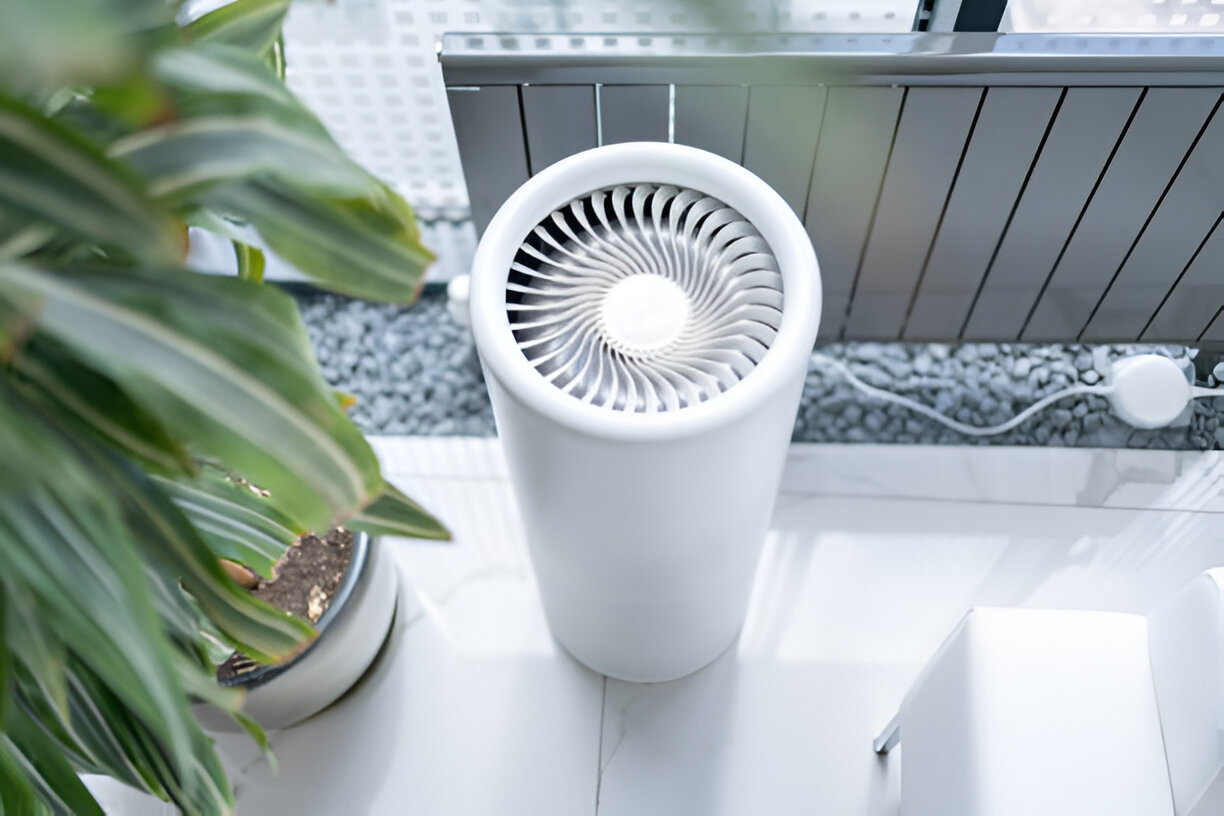Best Home Air Filtration in Friendswood, TX
Best Home Air Filtration in Friendswood, TX
Keeping indoor air clean is essential in Friendswood, TX. With Gulf Coast humidity, heavy tree and grass pollen, and coastal breezes carrying particulates, homes here face unique air quality challenges.

Why air filtration matters in Friendswood, TX
Friendswood homeowners commonly deal with:
- Seasonal pollen from oaks and grasses that trigger allergies
- High humidity that promotes mold and dust mite growth
- Road and construction dust from growing suburban areas
- Pet dander in many single-family homes
Effective home air filtration reduces allergy and asthma triggers, protects HVAC systems from dust buildup, and improves comfort during humid summers when windows stay closed more often.
Common home air filtration issues in Friendswood, TX
- Inadequate filtration for fine particles such as pollen and smoke
- Filters with too low a rating allowing dust and mold spores through
- Increased HVAC strain or reduced airflow after upgrading to high-efficiency filters without adjusting system capacity
- Poor humidity control causing continued mold and biological growth despite filtration
Understanding these issues helps choose the best home air filtration option for your home size and needs.
Types of home air filtration solutions (and when to choose them)
- Whole-house filter upgrades (MERV 8 to MERV 13)
- Best for: homes with central HVAC wanting whole-home protection and simple maintenance.
- Pros: Filters all conditioned air, low user effort.
- Considerations: Higher MERV ratings increase pressure drop; confirm HVAC blower capacity.
- True HEPA whole-home or portable units
- Best for: allergy and asthma sufferers who need the highest particle removal in key rooms.
- Pros: HEPA captures 99.97 percent of particles 0.3 microns in size.
- Considerations: Whole-house HEPA systems require professional integration; portable HEPA units work well in bedrooms and living areas.
- Electronic and electrostatic filters
- Best for: homeowners looking for reusable options.
- Pros: Washable and low recurring filter cost.
- Considerations: Performance can decline without regular cleaning; some generate ozone.
- UV germicidal lights and bipolar ionization (supplemental)
- Best for: targeting biological contaminants and microbes when combined with filtration.
- Pros: Reduce viable bacteria and mold on coils and filters.
- Considerations: These are supplemental and not replacements for particulate filtration.
- Dehumidifiers and ventilation upgrades
- Best for: homes with persistent humidity and mold issues.
- Pros: Lower relative humidity reduces mold and dust mite populations, improving overall air quality.
- Considerations: Proper sizing and drainage are required.
Performance metrics you should know
- Particle removal efficiency
- HEPA: removes 99.97 percent of 0.3 micron particles.
- MERV ratings: higher MERV captures progressively smaller particles; a MERV 13 filter is recommended for fine particles and many allergens.
- CADR and room sizing
- Clean Air Delivery Rate (CADR) indicates how quickly a portable unit cleans a space. Match CADR to the room size and aim for higher air changes per hour (ACH) in bedrooms for allergy relief.
- Airflow impact and static pressure
- Higher-efficiency filters create greater pressure drop across the system. Before upgrading to a MERV 13 or whole-house HEPA, check that the HVAC blower can maintain proper airflow without undue stress.
- Air changes per hour (ACH)
- For allergy and asthma relief, aim for multiple air changes per hour in sleeping areas. Combining whole-house filtration with portable HEPA units increases effective ACH.
Installation and maintenance requirements
- Whole-house systems
- Installation: professional assessment recommended to confirm compatibility with your furnace or air handler.
- Maintenance: standard filters need scheduled replacement; higher MERV filters often require more frequent changes and occasional system checks.
- Portable HEPA units
- Installation: plug-and-play; place in primary living or sleeping spaces.
- Maintenance: pre-filters require monthly cleaning, HEPA cartridges typically replaced at recommended intervals.
- Electronic filters and UV systems
- Installation: professional recommended for UV and ionization systems integrated into ductwork.
- Maintenance: UV lamps usually require annual replacement; electronic filters need regular cleaning.
- Dehumidifiers
- Installation: may be portable or whole-house; whole-house units often need professional installation.
- Maintenance: empty or hook up drain lines; clean coils and filters seasonally.
Cost considerations (what affects overall cost)
- Initial equipment cost and whether professional installation is required
- Ongoing filter replacement frequency and cost
- Energy use: higher-efficiency fans and continuous operation of portable units increase electricity usage
- Maintenance: occasional professional HVAC checks, UV lamp replacement, and dehumidifier servicing
Instead of focusing on sticker price alone, evaluate total cost of ownership: equipment life, replacement parts, energy, and the health benefits of reduced allergy or asthma symptoms.
Representative case studies (typical outcomes in Friendswood)
- Suburban single-family home near Clear Creek
- Problem: heavy seasonal pollen and persistent dust.
- Solution: upgraded to a MERV 13 whole-house filter, added a portable HEPA in the master bedroom, and installed a smart monitor to track indoor PM2.5.
- Outcome: measurable drop in indoor particulates, fewer allergy symptoms reported during peak pollen season, and less visible dust on surfaces.
- Older home with musty odors and HVAC moisture issues
- Problem: mold spores and intermittent coughing in occupants.
- Solution: combined whole-house filtration upgrade, a duct-mounted UV light to reduce microbial growth, and a whole-house dehumidifier to keep relative humidity between 40 and 50 percent.
- Outcome: reduced odors, fewer moisture-related HVAC issues, and improved comfort.
Best options for allergy and asthma sufferers in Friendswood
- Primary recommendation: combine a high-efficiency whole-house filter (MERV 11 to 13 depending on HVAC capability) with portable True HEPA units in bedrooms and living areas.
- Supplement: control indoor humidity with a dehumidifier to limit dust mites and mold growth. Consider UV germicidal lighting for homes with recurrent microbial issues.
- Placement: run portable HEPA units overnight in bedrooms and during peak pollen times. Seal doors and windows when outdoor pollen is high.
Maintenance checklist and final benefits
Maintenance checklist:
- Inspect and replace whole-house filters on manufacturer-recommended intervals; check monthly during high pollen season
- Clean portable pre-filters monthly and replace HEPA cartridges as advised
- Service dehumidifiers seasonally and maintain drain lines
- Have HVAC static pressure and blower capacity evaluated before upgrading to very high MERV filters
Benefits of proper home air filtration in Friendswood:
- Fewer allergy and asthma flare-ups during pollen season
- Cleaner indoor environments with less dust and pet dander
- Lower HVAC maintenance from reduced dust build-up
- Improved comfort in humid months by integrating filtration with humidity control
Selecting the best home air filtration in Friendswood, TX, means balancing filtration efficiency, HVAC compatibility, and local environmental factors like pollen and humidity. The right combination of whole-house upgrades, targeted portable HEPA filtration, and humidity control delivers the most consistent relief for allergy and asthma sufferers while protecting your home and HVAC investment.
Customer Testimonials
Our customers praise our exceptional service and attention to detail, consistently exceeding expectations.































































